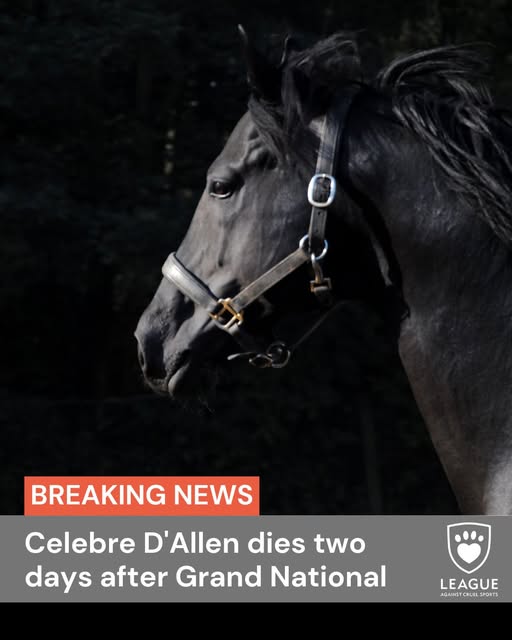Aintree Horse Death & Obituary: The tragic death of Celebre D’Allen, a horse that withdrew from the 2025 Grand National due to heat exhaustion, has once again cast a shadow over one of Britain’s most iconic sporting events. The horse passed away two days after collapsing, prompting renewed outcry over the safety and ethics of horse racing.
Terry L. Campbell Death & Obituary: A Legacy of Kindness, Community, and Love
Animal Welfare Groups Call for Urgent Reform in Horse Racing Industry
Following the incident, Emma Slawinski, CEO of Animal Aid, reiterated her organization’s call for urgent reforms within the racing industry. She demanded the establishment of an independent regulator with a primary focus on animal welfare, alongside a ban on whip use and an end to the practice of sacrificing horses for profit and entertainment.
The Grand National: Tradition Versus Animal Welfare
The Grand National, held annually at Aintree Racecourse, is one of the most-watched horse races in the world. Yet, it is also infamous for the high number of horse injuries and fatalities. Since 2000, 17 horses have died during the Grand National itself, with 67 total fatalities at the Aintree Festival, according to Animal Aid.
These numbers are more than statistics—they represent the lives of animals pushed beyond their physical limits for sport and betting revenues.
A Grueling Course: 30 Fences Over 4 Miles
The structure of the Grand National is a major concern for animal welfare advocates. With 30 fences spread over a 4-mile course, horses are subjected to extreme physical exertion, often beyond their capacity. Many are young and not adequately conditioned for such demanding terrain, which contributes to injury and death.
Is the British Horseracing Authority Doing Enough?
Currently, regulation of the sport lies with the British Horseracing Authority (BHA), but critics argue that it prioritizes industry interests over animal safety. Slawinski and other campaigners say only an independent body—separate from racing and betting influences—can truly enforce meaningful safety measures and animal protection.
The Controversial Use of Whips in Racing
Another major concern raised is the continued use of whips. Although defended by some in the industry as a necessary tool, animal rights organizations believe whip use causes unnecessary pain and distress. An immediate ban, they argue, would be a crucial step toward more humane treatment of racehorses.
The Need for a Complete Industry Overhaul
Slawinski’s demands extend beyond the Grand National. She advocates for a complete overhaul of the horse racing industry, ensuring that horse welfare becomes the central concern. While racing generates billions in revenue, activists insist that financial profit should never come at the cost of animal lives.
Conclusion: Time to Prioritize Animal Welfare Over Profit and Tradition
The death of Celebre D’Allen is a heartbreaking reminder of the risks that horses face in the Grand National and similar events. As public awareness grows and pressure mounts from advocacy groups, it is imperative for the racing industry to act now.
Establishing an independent animal welfare regulator, banning the use of the whip, and enforcing stricter safety standards are essential first steps. The time has come to rethink the balance between tradition, entertainment, and the ethical treatment of animals. No horse should die for sport.

